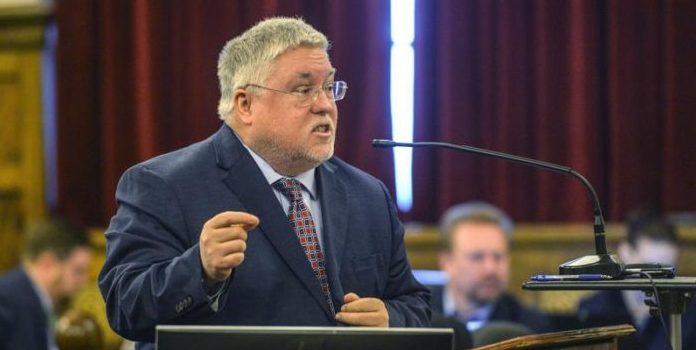(Mark Pellin, Headline USA) When the Supreme Court ruled earlier this year that the Environmental Protection Agency couldn’t unilaterally usurp authority given to Congress in its quest to implement a radical green-energy agenda, it set a precedent that could prove critical in the ongoing fight against egregious government overreach.
With a 6-3 decision, the court ruled in West Virginia v. The Environmental Protection Agency that Congress and not government bureaucrats had the constitutional authority to regulate carbon dioxide emissions from power plants, a move crafted as part of the Biden administration’s go-green transition away from coal energy.
“This was a win for every state, not just West Virginia,” the state’s attorney general, Patrick Morrisey, told Headline USA in an exclusive interview.
“Regardless of where you live, however you feel about climate change, whether you’re a Republican or a Democrat, the court’s decision said it’s important to play by the rules,” said Morrisey, who led the challenge.
“This is about maintaining the separation of powers,” he said. “Don’t try to use government bureaucracy and an agency like the EPA to bypass Congress’ role under the Constitution.”
While the court’s decision carried national implications, its root started on a decidedly local level for Morrisey, who saw the crippling impacts that excessive government regulations and social-engineering environmental policies were taking on his state.
“I ran for office because I was deeply concerned about what I saw happening with the Obama administration’s overreach,” Morrisey said. “I thought the AG needed more people with a regulatory background to win those battles.”
The voters agreed and under Morrisey the state brought action against President Barack Obama’s so-called Clean Power Plan, which recklessly targeted the coal industry with sweeping mandates from the EPA to shift energy production away from coal-fired plants.
“There was nothing that gave them the authority to do what they were doing, which was sidestepping Congress to exercise regulatory power they didn’t have,” Morrisey said.
The case was shot down three times at the D.C. district court level, before winning a stay from the Supreme Court in 2016. It took on renewed ramifications when the Biden administration’s EPA essentially declared it had unchecked regulatory authority.
In deciding that it didn’t, the court relied on the so-called major question doctrine, that is when it comes to issues that have major economic, social or political importance, it shouldn’t be assumed that government agencies have the authority to make policy decisions that should rest with Congress or with its explicit approval.
“A decision of such magnitude and consequence rests with Congress itself, or an agency acting pursuant to a clear delegation from that representative body,” Chief Justice John Roberts wrote for the court majority in West Virginia v. the EPA.
“This has always really been about a fundamental question of who decides the major issues of the day,” Morrisey said. “Should it be unelected and unaccountable bureaucrats, or should it be the people’s representatives in Congress?”
With that major question firmly in mind, Morrisey and other attorneys general are turning their attention to a likely looming battle with the Securities and Exchange Commission.
The SEC in March announced a radical initiative that would force companies to comply with climate change disclosure requirements that show their contributions and detriments or risks associated with global warming.
The new rules would force companies to disclose so-called ESG — environmental, social and governance — information to shareholders and the SEC. The disclosures encompass everything from diversity among company leadership and their approach to climate change, to political contributions by board members and employees and a company’s receptiveness to social change, giving new meaning and purpose to a financial equity analyst’s role.
“This is the worst type of government mission creep,” Morrisey said of the SEC’s ESG plans.
“It’s another effort by the Biden administration to use these agencies, like the EPA, and in this case the SEC to push political agendas and preferred policies.
“But this doesn’t have anything to do with climate change,” Morrisey said. “Congress created the SEC to protect investors and financial markets, not create environmental and social policy.”
If the SEC ESG battle runs its predicted course, the case is likely to land in familiar stomping grounds for Morrisey, before the Supreme Court, where advocates could use a good precedent.
“I think this falls right into the major questions category,” Morrisey said. “You again have an administration trying to short-circuit the law to impose its political agenda.”

